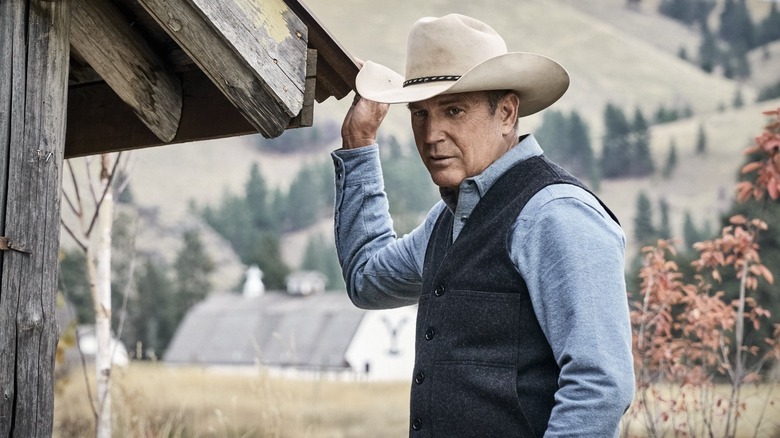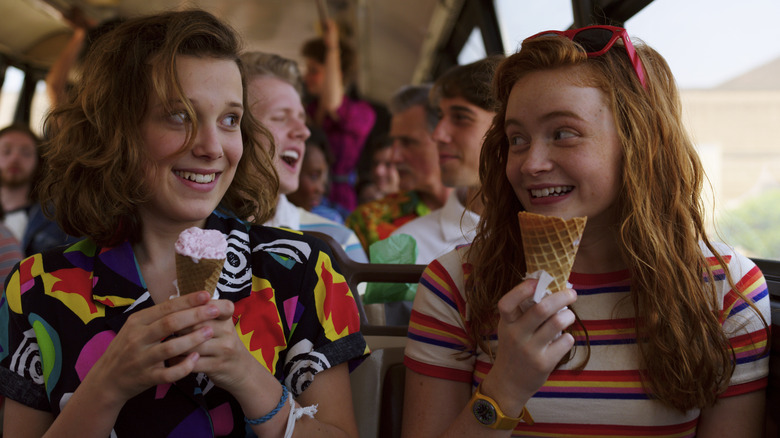Hollywood's Top TV Execs Are Happy About The Death Of Peak TV – Here's Why [ATX Festival]
The Streaming Wars were unhealthy for everyone. Let us look back for a moment to see where it took us: sometime in the mid 2010s, TV networks turned to Netflix as a surprising new model of potential streaming success. Not wanting to be left in the dust, the networks felt they should all launch their own streaming platforms, wanting to adapt to the times. In this new model, streaming services would be able to vertically integrate each individual studio's output, gathering all of their properties under one umbrella, as it were.
It was certainly appealing to the studio bean-counters that streaming services weren't required to reveal their subscription numbers or actual viewership, handily cutting actors, writers, and everyone else out of potential royalties.
These new companies were very valuable from a stock market perspective, and the studios knew it. Every studio began dumping billions upon billions into high-profile TV shows and original feature films to be broadcast on their services exclusively. It didn't much matter what the content of these films and shows were. The shows just needed to look good on paper for investors and stockholders. The studio didn't care if you, the audience, watched them. Indeed, it didn't take too long before each streaming service hit the ceiling in terms of the number of active subscribers they could accrue, so merely having a valuable film on their service was enough.
There were so. Many. Shows. Literally hundreds.
Then, thanks to the strikes, it all came crashing down.
/Film's own Ryan Scott is currently attending he ATX Festival in Austin, Texas, where he sat in on the Presidential Forum panel to hear powerful execs talk about the state of TV. They agreed that Peak TV from the past five or six years is at an end.
They're relieved.
There was just too much TV
The glut of new shows briefly looked like it was a good thing, as it allowed a host of new voices into the marketplace. With hundreds of new shows being produced, the marketplace flooded. TV viewers were instantly spoiled with choices as networks hungrily competed for their eyeballs. For a few years, we lived through glory days of Peak TV.
But then, creators and actors soon learned they weren't getting paid beyond an initial flat fee; royalties were now gone. Viewers soon learned their favorite shows could be canceled and erased even if they were popular. The studios soon learned that, by not backing down from the hurtful models, they invited strikes.
Karey Burke is the President of 20th Television. When asked about the state of peak TV in the year 2024, she replied, frankly:
"Well, it's over. We're on the other side of it. We were talking about this at dinner last night [...] I never want to celebrate the loss of opportunity. I want to say that. But I do think we all felt the strain of 600-plus television shows in the marketplace. Just not being able to get the vitals on them. Things would come and go so quickly. A show that could have been your favorite show, you just never had a chance to even see [it] because there was just too much. And it was really straining resources. And, I think, tough for the audience. And not fair to the creators."
There were great shows coming out all the time, but when the studio only saw them as "content," nothing was being nurtured. And, damningly, no one was getting paid. Too much is better than not enough, but it's almost as bad.
600 shows at once wasn't good for anyone
As Burke said, it was a strain. Eventually, everything started to break, talented people realized they were being exploited, and the industry at large began to contract. Burke sees that ultimately as a good thing, even if it meant that hundreds of TV shows had to be canceled in the process:
"[P]latforms just don't have the marketing dollars for 600 shows in the marketplace. So, it feels like a natural and healthy correction to me. I don't think we're ever going to go back to three networks. We're well past that. [...] It's scary, and anytime there's a contraction and that can be concerning. But I do look at the bright side and I'm optimistic that we're still going to make a lot of amazing television. I wish we had more time to do it. More resources to support it."
Katherine Pope, the President of Sony Pictures Television Studios, agreed, noting that modern TV schedules didn't allow for long-term cultural ubiquity. She wanted to get into TV because long-running shows, in the best of circumstances, can indeed influence the culture at large. Streaming shows with six episodes a season and multi-year breaks in between couldn't do that. In her own words:
"[W]hen it's just short-order, 700 shows of six [episodes], and the two years later, six more, it's a very hard to have [an] impact [...]. The reason you go in TV as opposed to film, is the novelization format. The fact that characters get to grow and take baby steps forward and baby steps back over a long period of time. [...] We had these shows that were like these little one-offs, that, then, also didn't go right through."
One might hope that fewer shows, less money, and fair pay will eventually make TV more robust.


